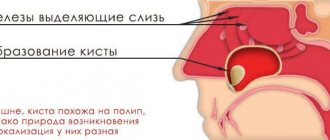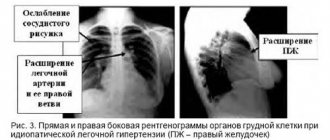The first 12 weeks after conceiving a child
is a period of active growth and development of the embryo, so managing pregnancy in the 1st trimester under the supervision of a qualified and caring obstetrician-gynecologist can be the best solution for parents and baby. In this article we will look in detail at what is special about this period, why it is very important to take care of the health of mother and child now, and what is included in the program of professional pregnancy management in the 1st trimester in our clinic.
Fetal development in the 1st trimester of pregnancy (1-12 weeks)
10-14 day
delay in menstruation is a reason to consult a gynecologist.
The 1st trimester of pregnancy is considered to be the period of development of the embryo (fetus) from the moment of fertilization of the egg and attachment of the zygote (fertilized egg) to the wall of the uterus until the 12th week.
This stage is characterized by a sequential change
of blastogenesis, organogenesis, placentary
, and also includes
the beginning of the fetal period
, when the fetus has already formed all organ systems, limbs and even the visual appearance of the baby.
It is the 1st trimester of pregnancy that obstetricians and gynecologists call “critical,” because, on the one hand, during this period, the most complex dynamic processes occur in a woman’s body: fertilization, the attachment of the zygote, the formation of all systems of the baby’s body. On the other hand, it is during this period that the fetus is most sensitive to damaging factors, so there is a possibility of pregnancy complications and abnormalities in the development of the fetus, if there are prerequisites for this. Moreover, this risk is even higher than in the 2nd or 3rd trimesters of pregnancy. Non-developing pregnancy
- one of the most significant and common risks that can appear already in early pregnancy.
Mothers who have previously faced the problem of infertility, miscarriage, or ectopic pregnancy
.
The obstetrician-gynecologists of our clinic
will not only conduct prenatal diagnostics themselves as part of a program for monitoring the baby’s development, but will also help correct pathologies in the development of the fetus in a hospital setting.
We manage pregnancies after IVF and have been helping women experience the joy of motherhood for over 20 years.
How is 1-2 weeks of pregnancy going?
Pregnancy period is calculated from the 1st day of the last menstruation
. Pregnancy begins with ovulation and fertilization. At this stage, the zygote attaches to the uterine cavity. It is extremely important that the anatomy (patency) of a woman’s fallopian tubes is not disturbed. The endometrium must be ready to receive a zygote, and there should be no inflammatory processes in the uterine cavity (its mucous membrane) - this increases the likelihood of low placentation. The movement of the zygote through the fallopian tube takes, on average, 2-3 days. Violation of the patency of the fallopian tubes and, in connection with this, the retention of a fertilized egg can cause an ectopic pregnancy.
As part of the planning and management of pregnancy (in the 1st trimester), a woman undergoes ultrasound diagnostics
, and also takes
tests
aimed at identifying such deviations. It is at this stage of pregnancy that it is already possible to determine the fertilized egg in the uterus and, for example, to exclude an ectopic pregnancy.
The main indicator by which pregnancy is diagnosed and its development is further monitored is the hCG level
(human chorionic gonadotropin) in the blood. If the pregnancy test result is positive, the hCG level exceeds 30. Pregnancy can be diagnosed using hCG within 2-4 days after a missed period.
At the initial stage of pregnancy in the 1st trimester, it is extremely important to compensate for the deficiency of nutrients (iron, magnesium, folic acid), which provide the necessary components for fetal growth, and restore hormonal balance. This must be done strictly under the supervision of a doctor and after undergoing tests - spontaneous use of medications, even herbal ones, can cause irreparable damage to the health of the mother and child.*
*
A notorious historical example is the thalidamide disaster of 1961.
How is 3-8 weeks of pregnancy going?
The embryo develops organs: heart, neural tube, intestines, etc. The placenta performs a number of vital functions: nutrition, respiration, excretion, synthesis of hormones and nutrients, blood circulation. The processes of active protein synthesis and embryonic growth factors require a good blood supply from the mother.
Organogenesis from the 3rd week of pregnancy is considered the most important and risky period of development. Any internal failure in the ligament: “mother - placenta - developing organs of the embryo”
can lead to fatal developmental defects.
At 6-7 weeks
During pregnancy, ultrasound diagnostics can already record the baby’s heartbeat.
At 7-8 weeks
During the 1st trimester of pregnancy, the fetus's limbs are formed, the process of embryogenesis is completed - this means that the embryo has all its organs and tissues formed in its infancy.
The period of 7-8 weeks is optimal in order to undergo the first large-scale clinical and laboratory examination and register.
You can contact our clinic regarding pregnancy management in the 1st trimester - we will issue an exchange card for the expectant mother and help her undergo modern diagnostics in a comfortable environment.
How is the 9th - 12th week of pregnancy?
The stage of active growth and complexity of the baby’s body. The fetus develops a lymphatic system and complex reflexes appear - the child can cover his face with his palms, or bring his thumb to his mouth.
Thus, in the 1st trimester of pregnancy, the most important and significant changes occur in a woman’s body - it begins to work literally for two, directing resources to the active growth and development of the fetus. To ensure good blood circulation, the work of the heart increases. To ensure that the baby receives the necessary amount of oxygen, pulmonary ventilation becomes more intense. The kidneys are now responsible for removing waste products from the mother and fetus. The uterus increases in size, which often leads to stagnant movements in the intestines - constipation. Taste sensations change; a woman may experience nausea and toxicosis
in the 1st trimester of pregnancy. Mild toxicosis in early pregnancy is treated with medication. Moderate and severe toxicosis in the 1st trimester of pregnancy is treated in a day hospital (for example, using hormonal infusion therapy).
It is important that the expectant mother not only undergoes examinations according to the program, but also receives support. When contacting our clinic regarding pregnancy management in the 1st trimester, you can count on the help of highly professional obstetricians and gynecologists, constant feedback from the doctor, and the European level of medical service.
Give up bad habits and form good ones
Pregnancy is a great opportunity to get rid of bad habits.
Any doctor will confirm that the expectant mother should not smoke. Why is smoking harmful? Tobacco smoke contains many harmful substances: nicotine, carbon monoxide, hydrogen cyanide, tar and some carcinogens. They are harmful to the developing fetus. And when smoking, the body loses vitamins B and C, as well as folic acid. Its deficiency is harmful for mother and child.
You should also give up alcohol: there are no safe doses of alcohol for pregnant women, this applies to both cognac and red wine.
It is also important to give up caffeine, which is found in tea, coffee, chocolate, cocoa and many soft drinks: according to research, it also has a bad effect on the baby’s development.
Pregnancy allows you to get rid of bad habits and improve your health automatically - because you eat right for the sake of the baby. If earlier you lacked willpower, now everything is in order with motivation.
What useful habits should a pregnant woman acquire so that she feels as harmonious as possible?
First of all, these are walks in the fresh air. Now they are incredibly useful for you: they improve blood circulation, help you keep fit, and you are slowly preparing for long walks with your baby.
Gymnastics for pregnant women is recommended starting from the 13th week. It helps cope with pain in the sacrum and reduces swelling. You can also do yoga - but only special yoga and only if you have had experience in such classes before. Both gymnastics and yoga lift your spirits and teach you relaxation, which is always important, especially for more emotional pregnant women. There is no need to be afraid of harming the baby: on the contrary, if you feel good, the child feels it. And improved blood circulation from deep breathing also benefits him.
Pregnancy management program in the 1st trimester
The examination plan during the 1st trimester of pregnancy was developed strictly in accordance with the regulatory documents of the Ministry of Health of the Russian Federation and does not contain “unnecessary” examinations.
The pregnancy management program includes:
- An initial consultation with an obstetrician-gynecologist, as well as a repeat consultation based on the results of the examinations completed,
is your chief physician and mentor. At the first consultation, the doctor examines the expectant mother’s medical history, gives a referral for examination, and helps in resolving the most significant issues based on the data obtained about the woman’s health condition. A repeat appointment is scheduled after a prenatal ultrasound and biochemical screening. The obstetrician-gynecologist registers the patient for pregnancy, fills out all the documentation, and gives recommendations. - Appointment with a general practitioner
- this doctor will help assess your general health, predict the risks of developing the most likely diseases during pregnancy and take timely measures. This is very important because during pregnancy a woman is strictly limited in taking medications and drugs. - ECG (electrocardiogram)
- allows you to assess the condition of the heart and identify pathologies: rhythm disturbances, blood circulation. - Appointment with an ENT doctor
- no woman is insured against diseases of the ear, nose and throat (colds, acute respiratory viral infections, sore throats), so it is important to carry out sanitation in a timely manner to avoid drug treatment during pregnancy. - Consultation with an ophthalmologist
- the doctor checks vision and evaluates the condition of the retina, and also determines whether the woman can give birth on her own or by cesarean section. Not only childbirth can affect vision, but toxicosis and other complications of pregnancy. - Ultrasound of the kidneys and bladder
- allows you to assess the condition of internal organs, identify hidden diseases (inflammatory, urolithiasis) and neoplasms. - Pelvic ultrasound
helps to study the anatomy of the pelvic organs, identify gynecological diseases and possible risks of complications. - Fetal ultrasound (performed by a perinatologist at 11-14 weeks of pregnancy)
allows you to see for the first time during pregnancy how the baby is growing and whether everything is fine. - Biochemical blood test
- study of more than 15 important indicators (sugar, protein, iron, etc.). - A general blood test
is the most important test, as a result of which the doctor obtains indicators of platelets, hemoglobin, red blood cells, etc., and then can accurately assess the general condition of the expectant mother’s body. - A general urine test
allows you to evaluate how the kidneys and urinary system work, as well as identify pathologies such as gestosis and eclampsia. - Blood group
- the analysis allows you to answer the question of whether there is a Rh conflict in the blood type of mother and baby. - A blood test for hormones
is a very important test that provides an understanding of the specifics of metabolism and allows one to predict how the fetus will develop. - Testing for HIV, syphilis, hepatitis B, C
is mandatory for the expectant mother. - PRC diagnostics
is a laboratory analysis aimed at identifying many hidden infectious pathogens (from pneumonia to herpes). - Laboratory examination of a gynecological smear
- analysis of the microflora of the vagina, cervical canal, urethra allows us to identify hidden inflammatory processes and their causative agents (gonococcus, trichomonas) - Biochemical screening (PAPP-A, hCG, risk calculation)
is a very important examination that allows you to assess the risk of chromosomal pathology, obtain the most important indicators of fetal development, and also answer the question of whether it is advisable to prescribe invasive diagnostic methods. - Extended coagulogram with determination of lupus type At+
- allows you to assess the risk of thrombosis and bleeding, which can lead to miscarriage.
Find out more about pregnancy management at the Pirogov Clinic (St. Petersburg)
About sport
Is it better to postpone sports during pregnancy?
In the first trimester, it is necessary to reduce the level of load: refrain from sharp bends and rises from a lying position, bending, and raising straight legs. The easiest way to be active for pregnant women at any stage is walking. Exercise during pregnancy is safe and may even have a beneficial effect on your pregnancy, but it is important to get approval from your gynecologist before participating in any sports.
There are also several important points here:
- It is better to postpone mastering new sports disciplines that require special technique and skill. But if you ran regularly before pregnancy, then there is no reason to give up training if your doctor allows it: you may only need to change their intensity and frequency.
- It is better to avoid traumatic disciplines, as well as those in which there is a high risk of falling. This number includes boxing and various martial arts, horse riding, volleyball and football, snowboarding, and alpine skiing. Also, freediving and scuba diving should not be undertaken at any stage of pregnancy.
- But you can swim on the surface. In this article we talked about the benefits of swimming for pregnant women. In it, we share tips for those who still feel unsure on the water and help them pack their bags for the pool.
Links to sources: [1] Nutrition for pregnant women. uptodate.com [2]Healthy eating. WHO recommendations. [3] 10 Tips for Preventing Infections Before and During Pregnancy. [4] Study Prenatal caffeine exposure induces liver developmental dysfunction in offspring rats. Journal of endocrinology [5] Drinking alcohol while pregnant [6] Antenatal care for uncomplicated pregnancies [7] Sex in pregnancy [8] Flights during pregnancy [9] Sports during pregnancy [10] Exercise during pregnancy and the postpartum period [11 ] Diving and Pregnancy: My Story
Pregnancy management after IVF in the 1st trimester
The pregnancy management program after IVF in the 1st trimester may differ slightly from the usual one. Firstly, the woman continues to be observed at the IVF center by a fertility specialist until 6-7 weeks, when the doctor can record the heartbeat of the embryo. Only after this can the expectant mother contact an obstetrician-gynecologist. At the first stage, the doctor decides on the advisability of maintenance hormonal therapy
, prescribed earlier at the IVF center. Whenever possible, we try to either reduce or eliminate additional hormonal therapy.
Thus, monitoring of pregnancy after IVF begins at an earlier stage, and the program can be adjusted depending on the characteristics of the individual case: is it a singleton or multiple pregnancy, what problems should be taken into account, etc.
Reviews
Video: conception and pregnancy
Video: 9 months pregnant
Video: I found out about pregnancy on the 5th day
The first month of pregnancy is a joyful and very important period in a woman’s life. However, for some it may go unnoticed - they do not yet know that they are pregnant. And someone will experience many anxious moments during this period. For women, this is, first of all, a period of caring for their physical and mental health: they have to rebuild their established lives taking into account new circumstances. The right approach will ensure you have a favorable pregnancy and childbirth.
Rate this article: Share with friends!
Advantages of pregnancy management in our clinic
The Department of Gynecology and Obstetrics of the Pirogov Clinic on Vasilievsky Island (St. Petersburg) is among the TOP 3 best in the city according to the results of the VIII and IX ranking of private clinics (2018-2019). You can view reviews about pregnancy management on our website, as well as on independent platforms. By contacting us, you can be sure of high diagnostic standards and professionalism of doctors. We offer our patients:
- Services of experienced, attentive and caring obstetricians-gynecologists - our specialists worked and improved their skills in clinics in Finland, France, the USA, as well as in maternity hospitals in St. Petersburg.
- Having your own laboratory and all specialized doctors in one place, as well as medical offices equipped with new generation equipment. You can undergo all examinations in a comfortable environment and without queues. We guarantee the reliability of the results. There is no need to come pick them up - we will send everything by email.
- Remote video consultations with gynecologists (online).
- Affordable prices for pregnancy management in the 1st, 2nd, 3rd trimesters.
- Possibility of paying for services in installments.
- The clinic is located on Vasilyevsky Island - in a picturesque historical area not far from the station. m. Vasileostrovskaya.
- Pregnancy management under VHI.
You can make an appointment with a gynecologist through our website or by calling 320-70-00.
We visit doctors
To quickly cope with the stress caused by a change in your status and start having fun, you should immediately choose a doctor who will manage your pregnancy and make sure that you take the necessary tests on time. You will have to spend many months in contact with him, and your peace of mind and confidence will be built on your trust in the doctor. Take this issue seriously and change your doctor or clinic if you are not satisfied with something. If you hear something from the doctor that scares you or does not suit you, consult with another specialist to get a more objective picture. You do this for yourself and for him - your baby. And most importantly: ask all your questions to the doctor, and not to someone else.
When you're pregnant, the last thing you want to do is waste time on bureaucracy. But everything is not as difficult as you think.
You will:
- Sign up for an antenatal clinic at your place of residence;
- Get diagnosed and tested;
- Prepare documents for receiving financial assistance.
Do not forget that the child’s father also needs to undergo a series of tests - the doctor will tell you about them.









